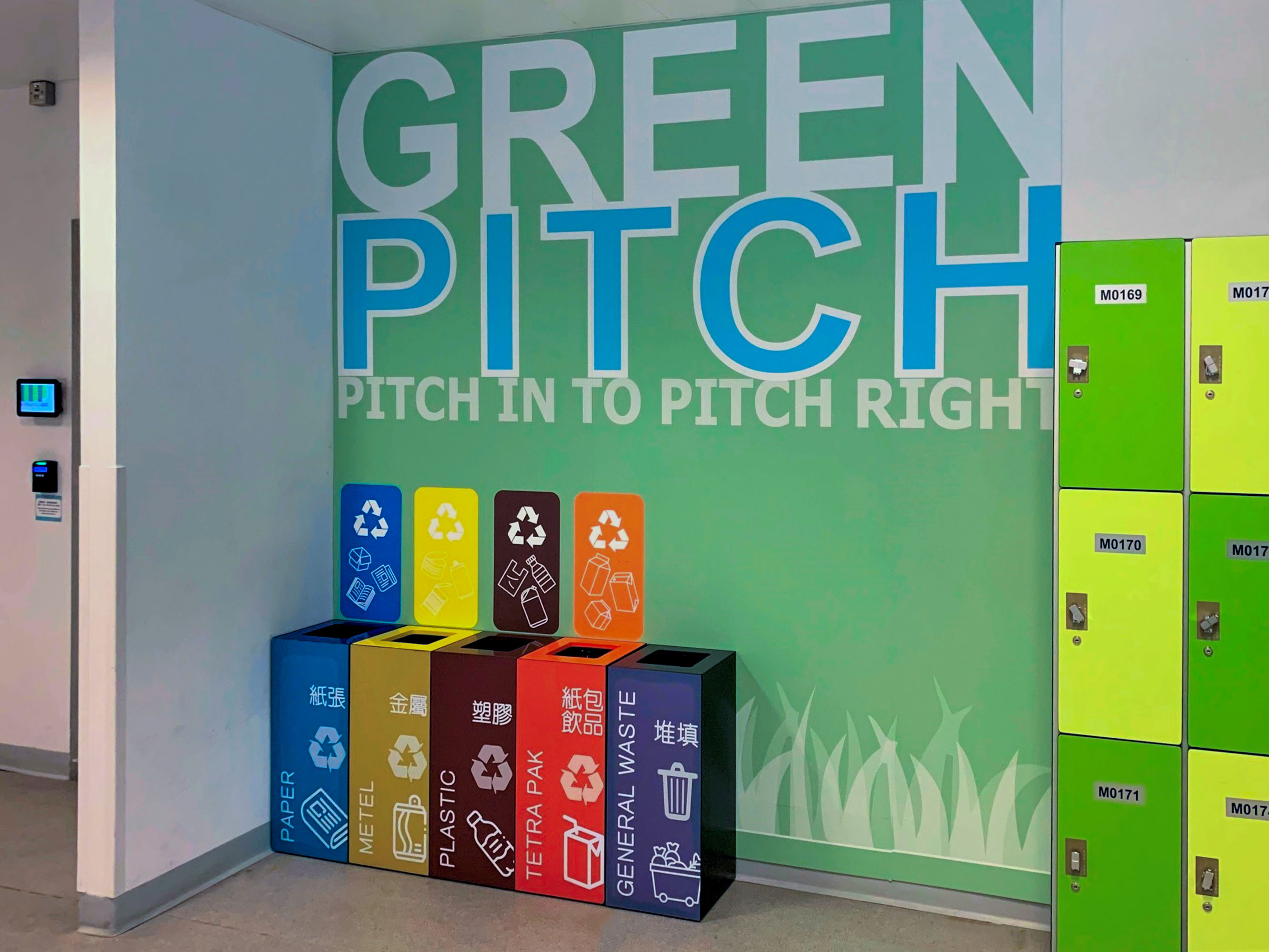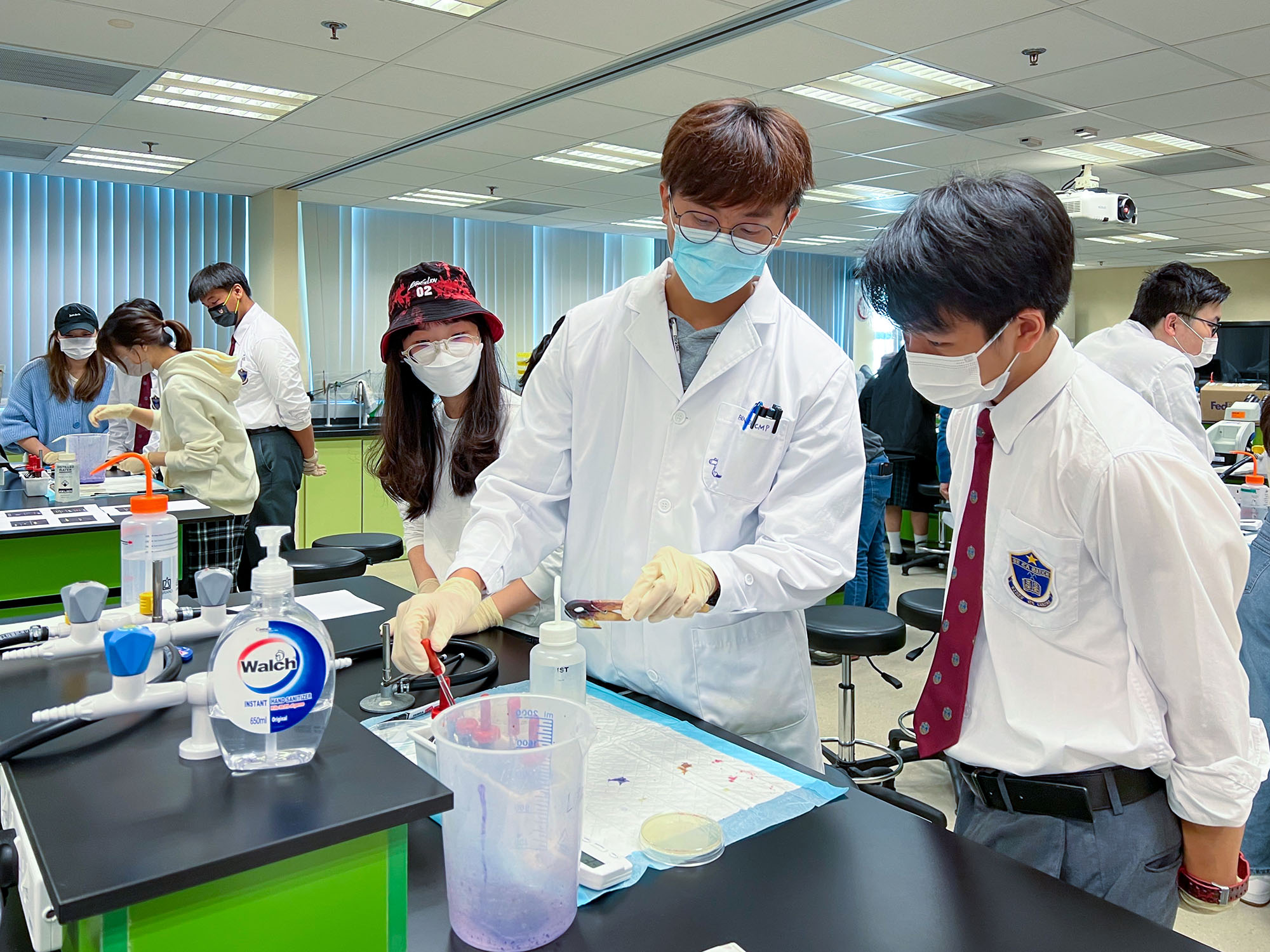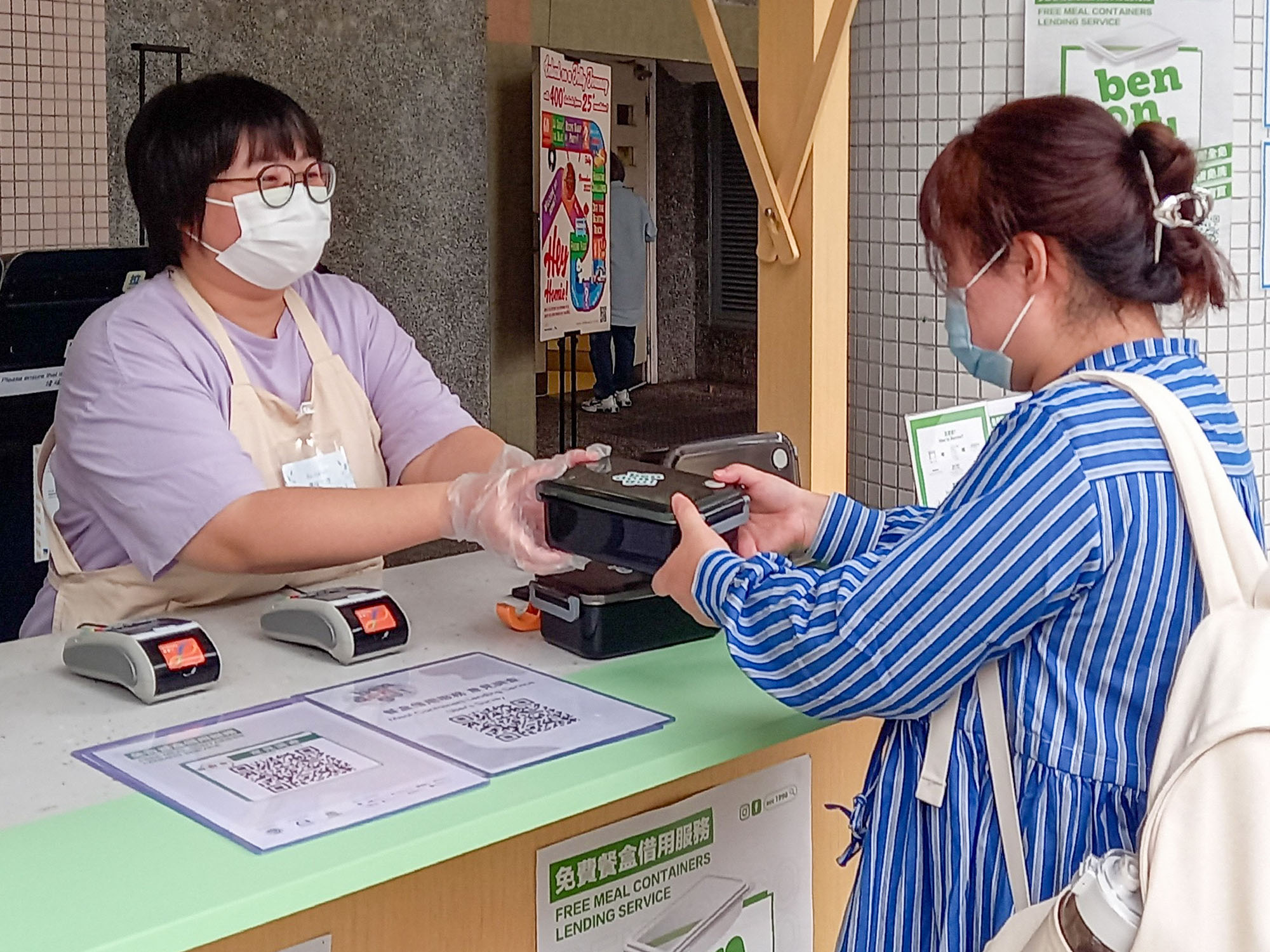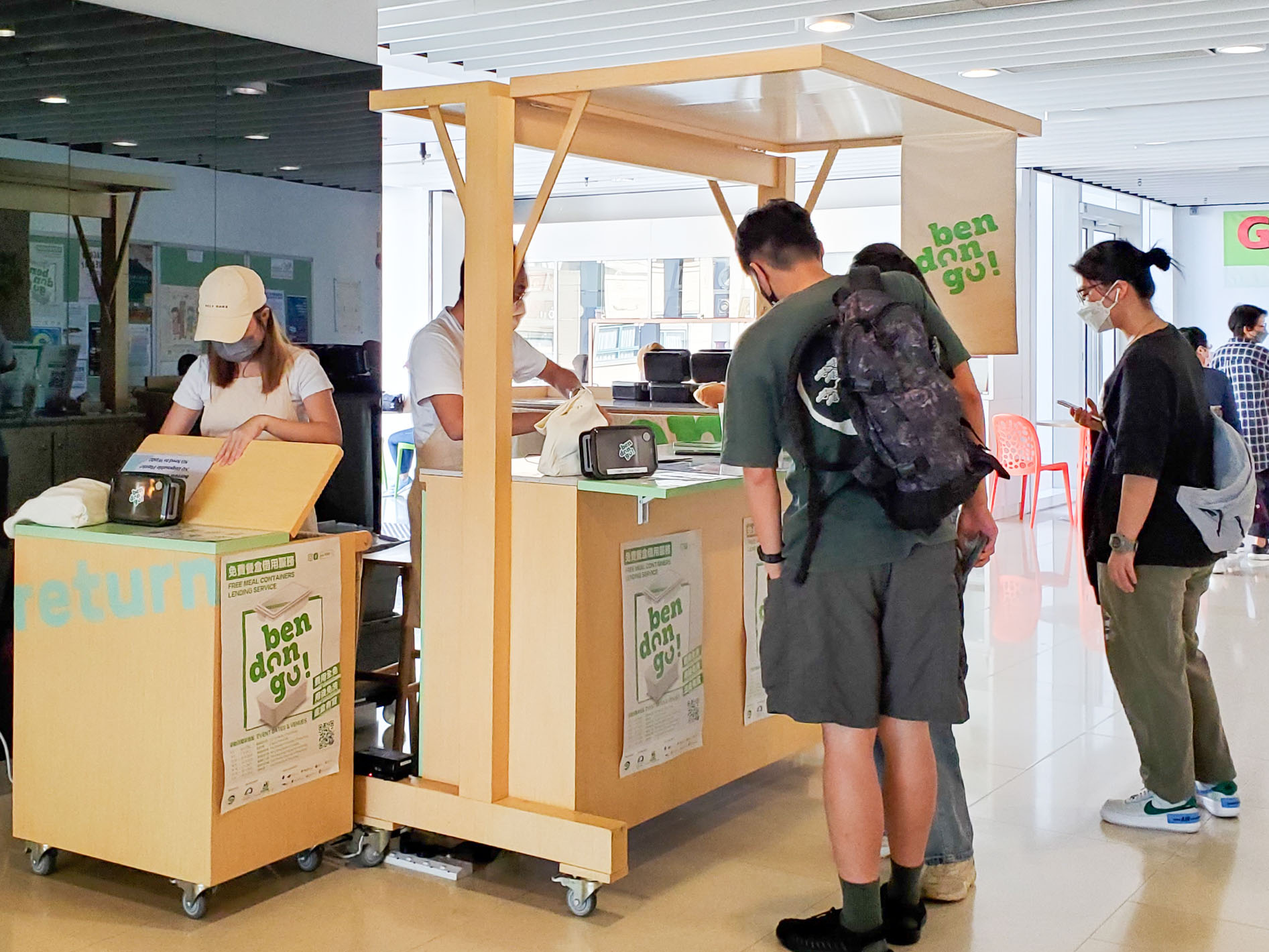SDG 12: Responsible Consumption and Production
Passing on knowledge of enzyme technology
Through the service-learning course “Fermentation and Enzyme Technology” led by Dr Patrick Yue of the Department of Biology, students learnt about the composition, structures, and real-world applications of enzymes. Combining lectures with hands-on exercises, they gained a deeper understanding of this field. The students then put their knowledge into action and collaborated with De La Salle Secondary School, New Territories. They planned science presentations and engaging hands-on experiments that benefited the community. Moreover, the course enriched the learning experience of the secondary school students, and kindled their interest in science education and fostered a desire to pursue higher education.
Addressing environmental issues through creative problem-solving
In the General Education course “Sustainable Design Thinking”, students were enabled to develop a critical and sustainable perspective on design practices. Through research and analysis of interdisciplinary concerns, students harnessed these insights to develop innovative product and system design. They designed solutions that aimed to address environmental issues and their outcomes were showcased at on-campus exhibitions. This experiential approach allowed students to understand the impact of their work and lifestyle choices on ecological, socio-economic, and cultural sustainability. By embracing a sustainable design thinking mindset and aligning their efforts with specific SDGs, students developed a desire for change and a heightened sense of awareness. The course also encouraged them to develop alternative solutions that can contribute to a more sustainable future.
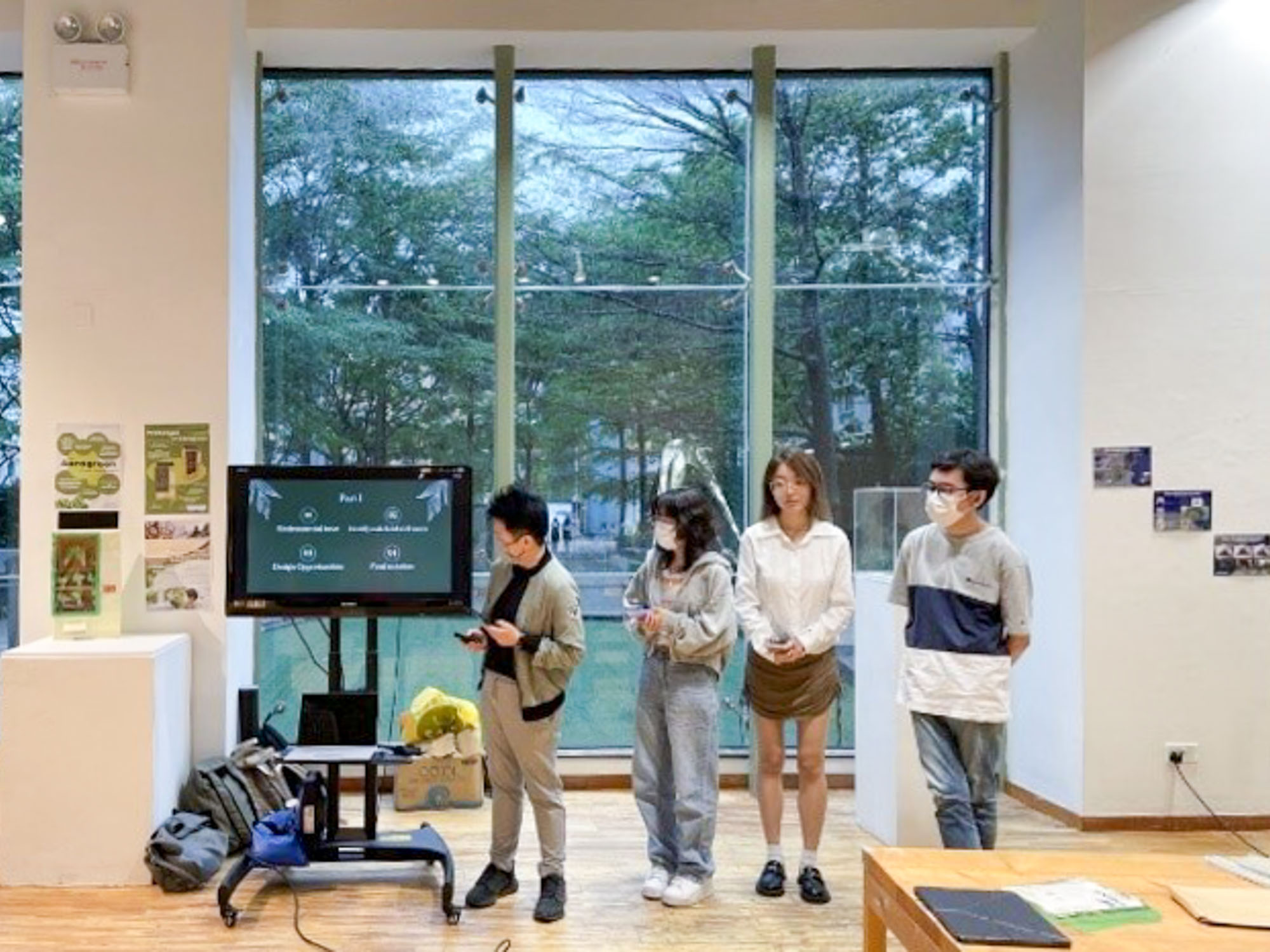

Promoting sustainable lifestyle at student residence
The Undergraduate Halls at HKBU recently organised a seminar aimed at promoting a sustainable lifestyle among hall residents and other students. The seminar, led by Mr Terence Hon, the Hall Fellow of C. L. Soong Hall and co-founder of GreenPrice, focused on tackling the issue of food waste. One of the key concepts introduced during the seminar was the idea of “best-before” items, which are high-quality, unopened, and intact food products that are close to their expiration date. Instead of being thrown away, these items are offered to households at a significantly reduced price, extending their lifecycle and preventing them from ending up in landfills. The seminar also provided participants with valuable insights into food recycling and waste reduction, highlighting the alarming levels of food and grocery wastage in Hong Kong and globally. As a result, participants were encouraged to reconsider their consumption habits and were inspired to engage in food recycling by redistributing short-dated items they had at home or in their hostels to those in need.
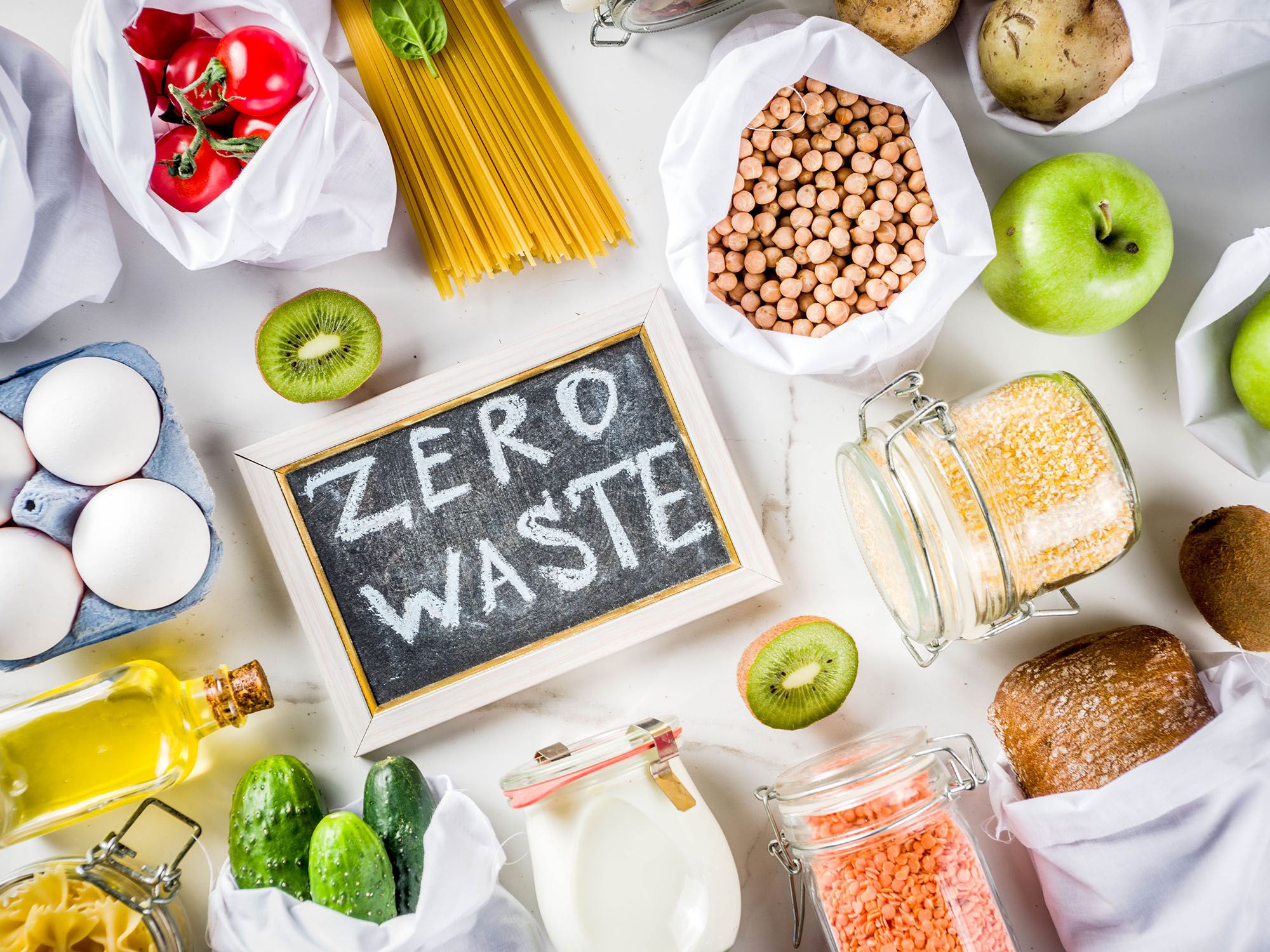



Mandatory CSR disclosure and analyst forecast properties
Department of Accountancy, Economics and Finance
Authors: Haina SHI, Byron Yang SONG, Huifeng XU*, Xiaodong XU
*Corresponding author
The disclosure of corporate social responsibility (CSR) activities has gained attention from stakeholders worldwide. In China, this interest led to the implementation of stand-alone CSR reporting requirements for certain listed companies by the two stock exchanges since 2008. In a study conducted by Dr Song and his co-authors, they examined the impact of these mandated CSR reports on earnings forecasts made by financial analysts.
The findings of their study revealed that when companies were required to provide CSR reports, the analysts made more accurate forecasts about the companies’ earnings. This improvement in forecast accuracy was particularly pronounced when the CSR reports were of high-quality and included information about the companies’ long-term goals. These findings underscored the value of mandatory CSR reports in enabling financial analysts to make improved predictions.
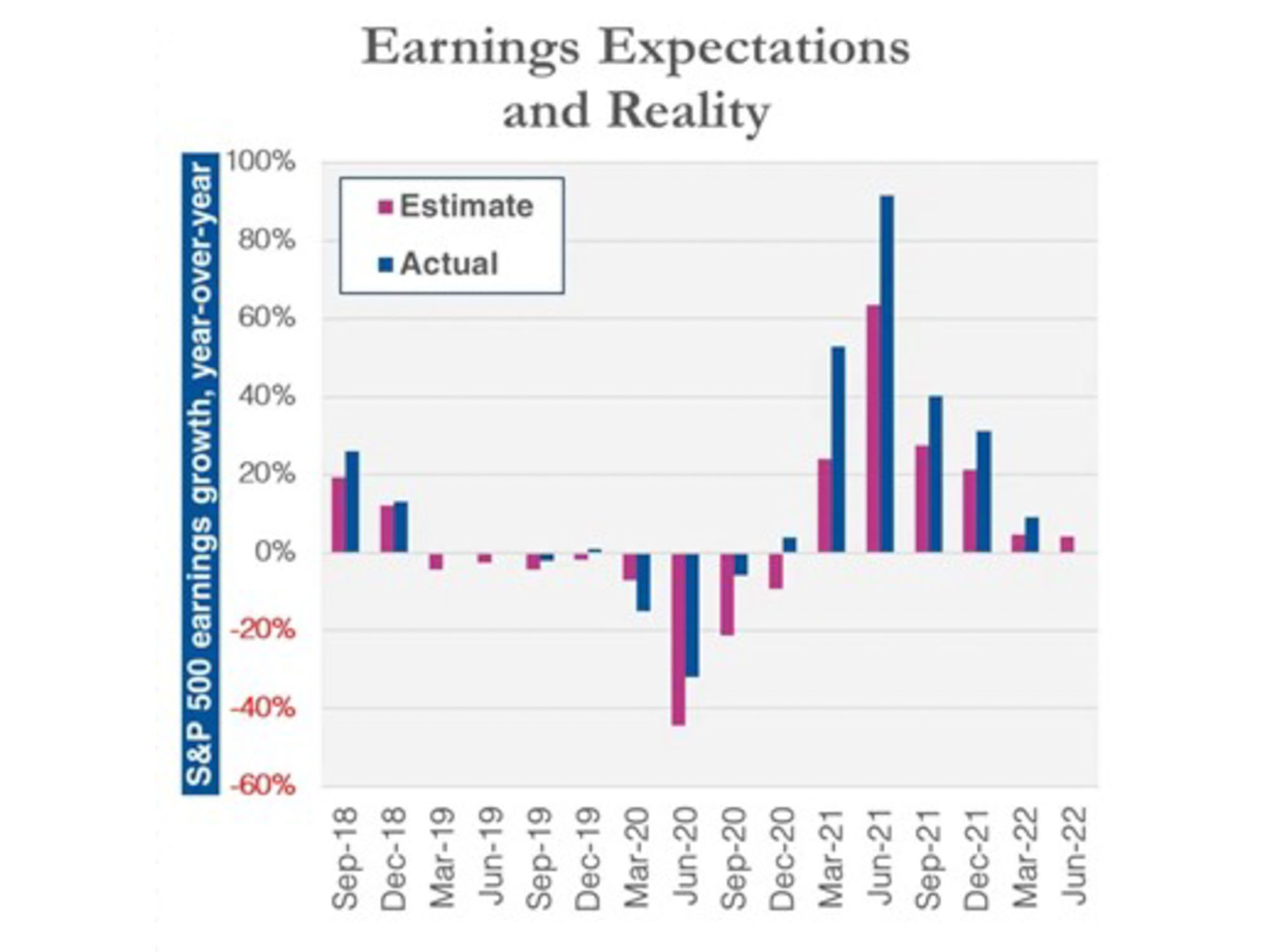

Improving food waste treatment technology in Hong Kong
Department of Biology
Author: ZHAO Jun
The management and disposal of bio-wastes have become increasingly challenging due to their growing volume. To maintain a sustainable environment, anaerobic digestion (AD) has emerged as a promising method as it not only reduces waste but also recovers methane energy. However, AD processes often encounter disruptions, leading to unstable performance.
In this study, the focus is on investigating the potential of hydrochar addition to AD systems to improve their performance. The study highlights the various benefits of hydrochar addition in AD systems, such as increasing methane yield, improving operation efficiency, enhancing digestate dewatering, and reducing heavy metals in the digestate. The mechanisms underlying the positive effects of hydrochar are explored, including its role in regulating electron transfer, influencing microbial community structure, impacting bio-processes within the AD system, and responding to specific reaction conditions. The study concludes by emphasising the impact of hydrochar properties in improving AD performance, and it aims to provide guidance for the application of hydrochar-mediated AD technology in maximising bio-waste resource recovery while suggesting areas for further research.
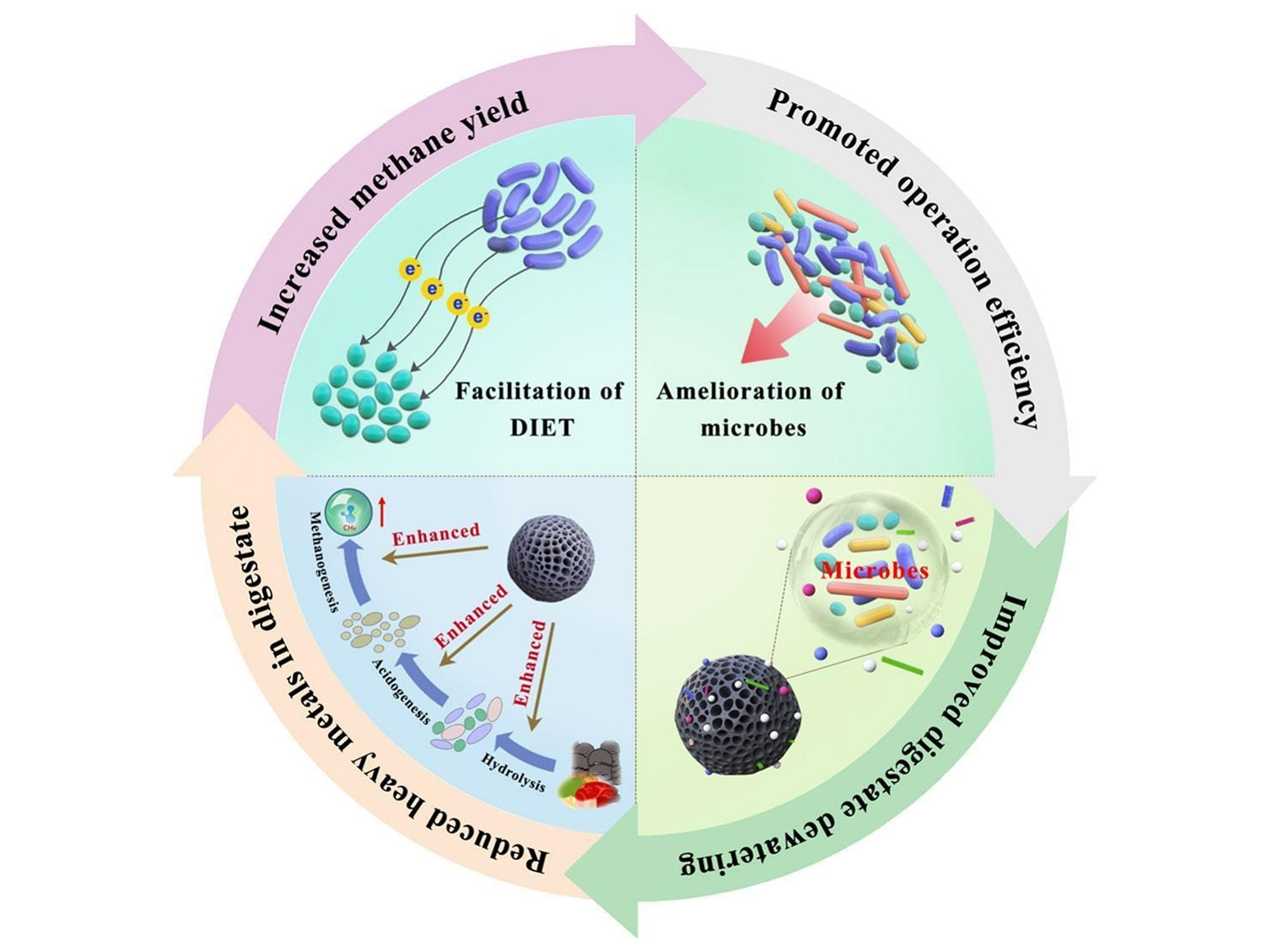

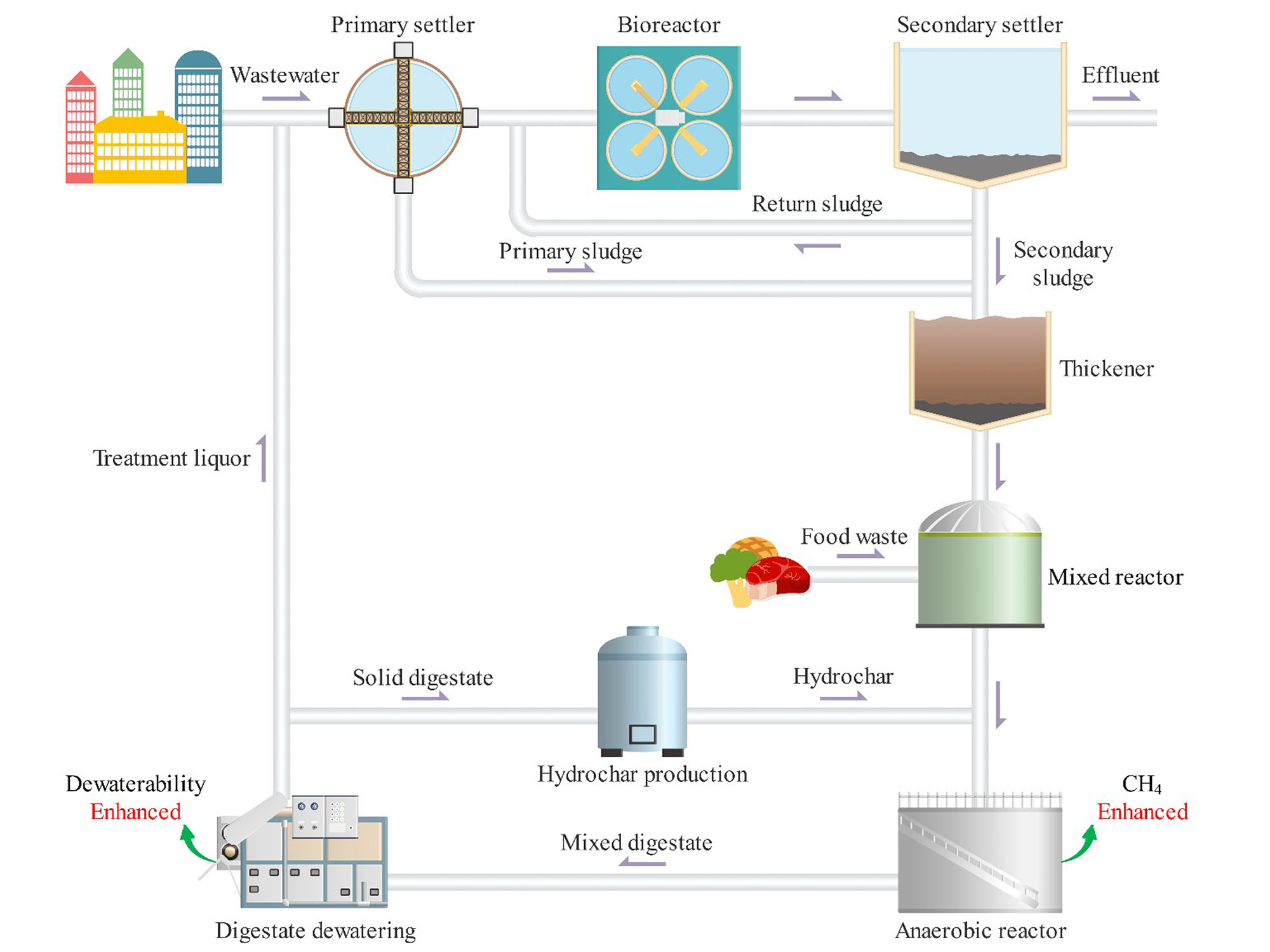

Ethical sourcing policies
To ensure sustainable practices, the University has implemented the Sustainable Procurement Policy and Sustainable Food Policy. The Sustainable Procurement Policy follows the “cradle-to-grave” principle, which considers the environmental and social impacts of products throughout their lifecycle. Similarly, the Sustainable Food Policy promotes responsible behaviour in sourcing and consuming sustainable food. It prioritises the protection of land and water ecosystems, the preservation of water resources, the maintenance of biodiversity, and the mitigation of the University’s impact on climate change. These policies exemplify the University’s dedication to sustainability and its commitment to making responsible decisions in procurement and food consumption.
Hazardous substance management
To ensure the highest standards of safety and environmental protection, the University has implemented strict regulations for the management and disposal of hazardous substances on campus. These regulations are enforced through the Dangerous Goods Management System, which tightly controls the usage of chemicals and dangerous goods. The system has undergone continuous improvements to ensure consistent data formatting and the streamlining of information exchange.
Recognising the importance of staying ahead of emerging challenges, a comprehensive study was conducted to explore the feasibility of integrating real-time location tracking technology into the existing system. This study aimed to enhance the effectiveness of chemical safety management and regulatory compliance monitoring, providing valuable guidance on potential enhancements to accommodate the ever-growing research activities on campus.
In line with its commitment to sustainable practices, the University has also developed the Waste Management Policy, which outlines the appropriate disposal of hazardous and clinical materials. By adhering to this policy, the University not only emphasises safety but also contributes to environmental preservation and protection.
Reducing plastic consumption and disposable items
The University has been making strides in its ongoing efforts to minimise the usage of plastic and disposable items, while fostering a culture of sustainable and responsible consumption. The Waste Management Policy states the University’s commitment to minimising the single use of disposal materials, products, and plastics. By promoting and embracing this policy, the University aims to create a greener and more environmentally conscious community. Through various initiatives and awareness campaigns, the University encourages students, faculty, and staff to adopt sustainable practices and reduce their ecological footprint.
- “ben don go!” programme
The Environmental Campaign Committee has launched an innovative initiative called “ben don go!” in Hong Kong universities to promote sustainability. The scheme aims to encourage students and staff to adopt reusable meal containers by offering convenient lending services. A dedicated booth has been set up on campus where participants can borrow these containers free of charge.
To participate in the scheme, individuals can register using their University ID card or make a $20 deposit per container. After using the containers, participants are not required to wash them, but they must ensure they are empty before returning them to the service point.
To maintain hygiene standards, designated tableware washing company will wash and sterilise the used containers on a daily basis. This ensures that the containers are clean and ready for reuse, promoting a sustainable and environmentally friendly approach to meal consumption on campus.
- Joint-U reusable meal container lending programme
A joint university programme has been implemented across eight universities to reduce single-use materials generated by catering services. This innovative programme aims to combat waste by offering free lending services for reusable meal containers on campus. Individuals can simply borrow a meal container from a conveniently located lending machine, fill it with their desired meal at the canteens, and return it to a designated machine once they have finished.
This programme enables students and staff to actively contribute to environmental preservation by replacing disposable meal containers with reusable alternatives. By participating in this initiative, individuals not only make a positive impact on the environment but also gain valuable insights into responsible consumption practices.
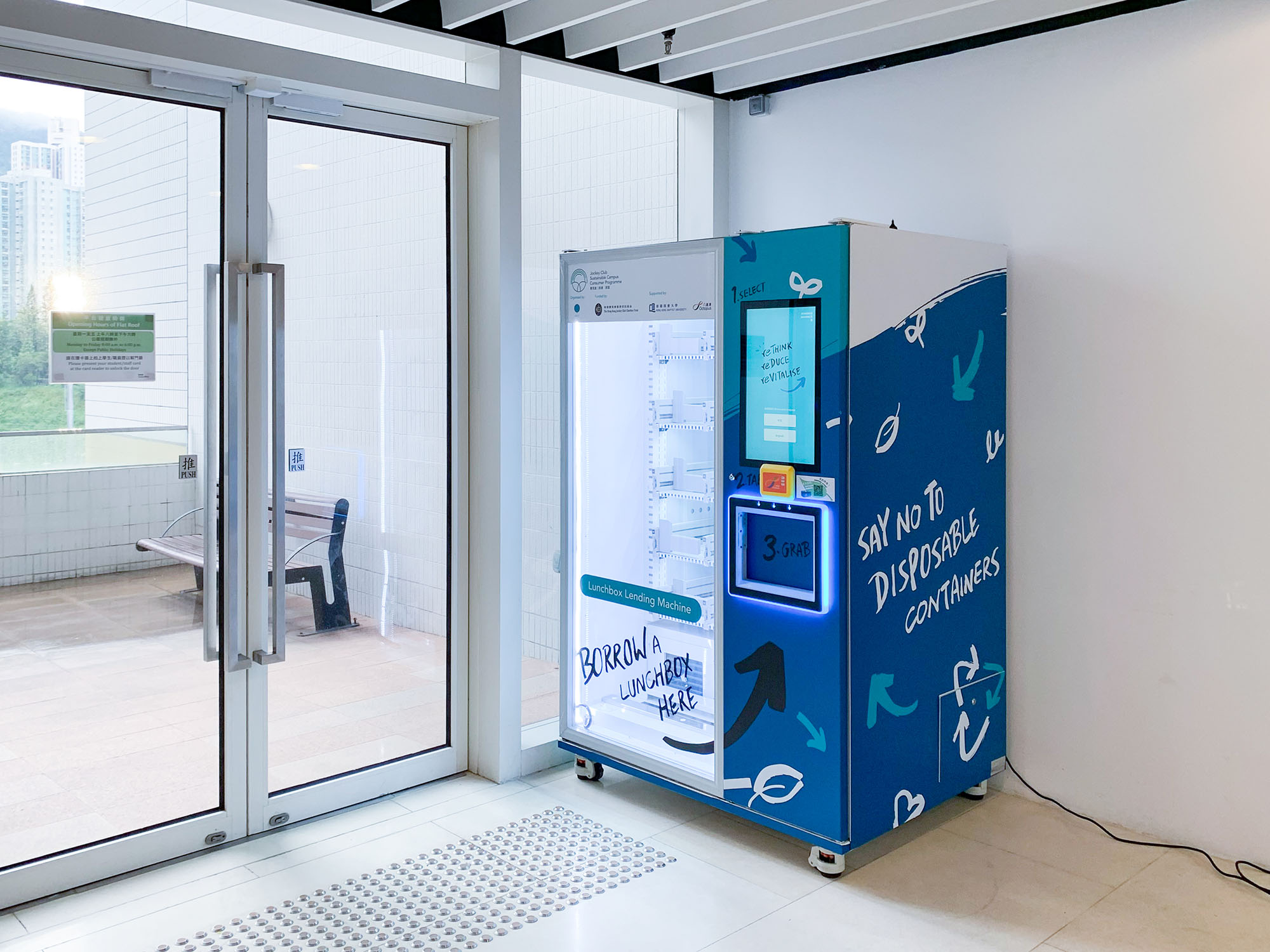

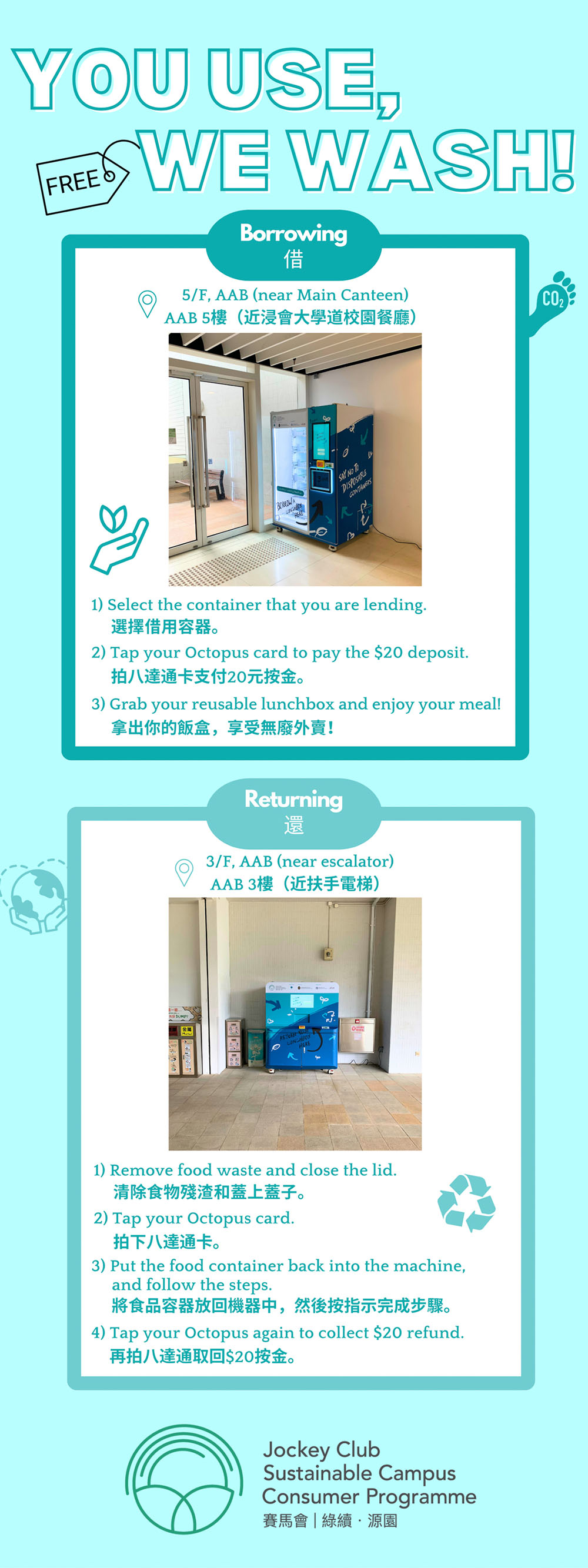

- Green catering initiatives
In a continued commitment to sustainability, the University has implemented more rigorous sustainability-related requirements in our contracts with new caterers and during contract renewals. These updated requirements have been designed to reduce waste generation. Notably, we have implemented a prohibition on the use of disposable tableware for dine-in orders, encouraging caterers to explore more sustainable alternatives. Additionally, we have increased the environmental levies for disposable tableware used in takeaway orders, incentivising customers to opt for reusable options.
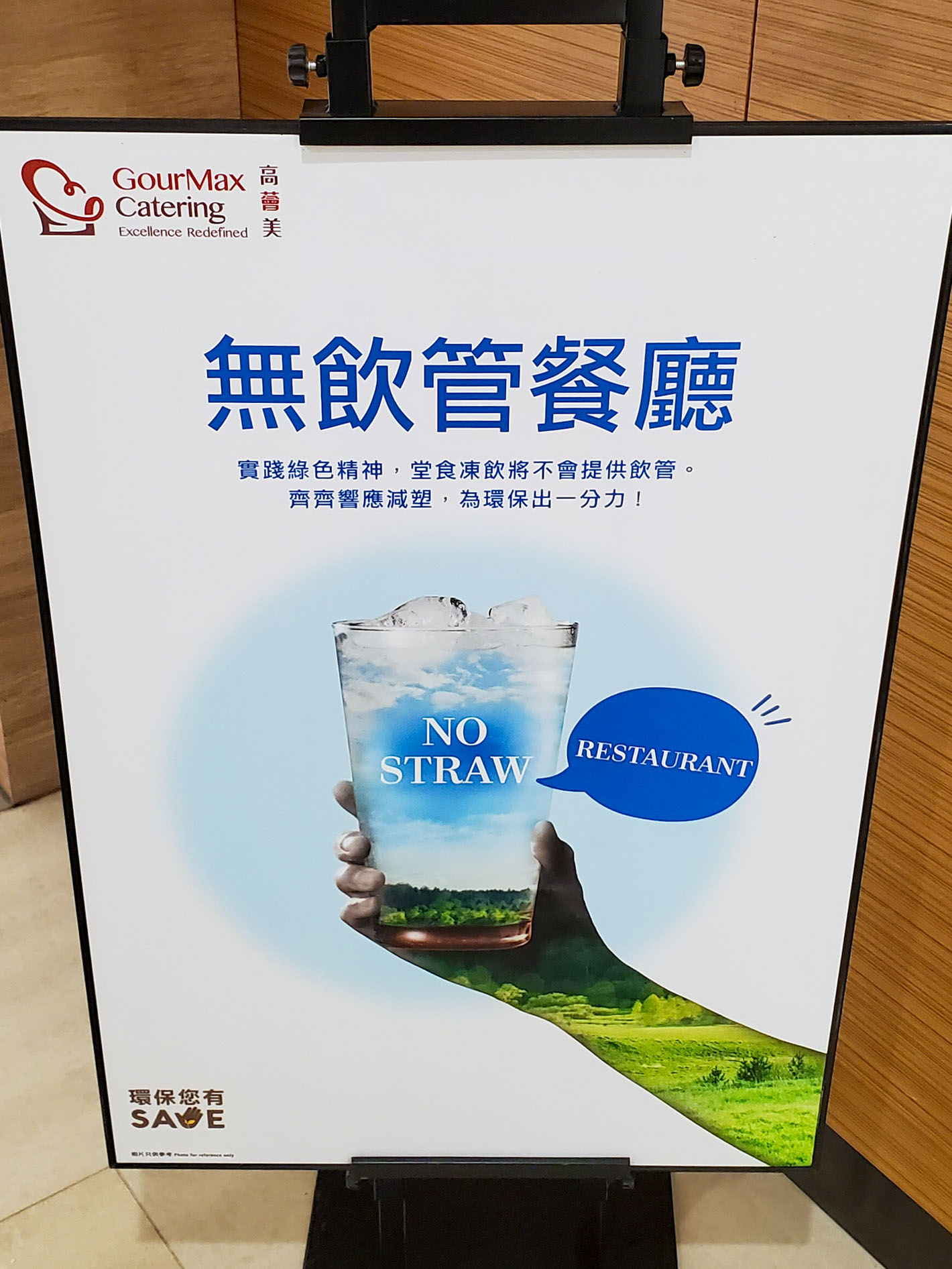

Sustainable waste management and reduction initiatives
The University is actively implementing various pilot initiatives to promote sustainable practices and reduce resource consumption and waste generation. As part of this commitment, a separate waste management system has been established on campus, with dedicated recycling facilities to encourage recycling and minimise landfill waste.
In line with the University’s vision for a sustainable campus, a Waste Management Policy has been developed, following the waste reduction strategy of “Use Less, Waste Less”. This policy aims to promote resource circulation and establish a sustainable waste management framework.
With the collective effort of the University community, significant progress has been made in waste management since the baseline year of 2016-17. Particularly, there has been a 19% reduction in municipal solid waste, while recyclables have seen a remarkable 100% increase. These improvements demonstrate the positive impact of sustainable practices and the University’s commitment to creating a greener environment.
- Joint-U clothing swap programme
To promote sustainable fashion, the University has organised clothing swap events on campus. These events go beyond exchanging clothes, as they strive to transform attitudes, behaviours, and knowledge. The events also create awareness and change perceptions about sustainable consumption and production. Clothes collection boxes are placed throughout the campus, and Pop-up Clothing Swap Markets are set up periodically.
- Joint-U programme: Smart energy metres and behaviour-activated showerheads at student residence halls
As part of the Joint-U programme’s sustainability initiatives, the University has implemented several measures at students’ residence halls to encourage responsible consumption through behaviour changes. Smart energy metres, behaviour-activated showerheads, and consumption performance dashboards have been installed to promote awareness and enable informed decision-making.
The behaviour-activated showerheads feature an innovative LED lighting system that changes to different colours for every 10 litres of water used. This gentle visual reminder helps users track and manage their water consumption while showering. Additionally, the data on water consumption will be accessible on an Internet of Things data platform for analysing the usage patterns. By combining technology with behaviour-change strategies, the University aims to empower individuals to make more sustainable choices and contribute to a greener future.


- Green Corner: Reward-based smart recycling programme
The Green Corner, a newly launched store on campus, is a dedicated space equipped with smart recycling bins. It serves as a catalyst for promoting recycling among staff and students by offering a captivating incentive system. By recycling, individuals could earn points that are redeemable for various gifts and rewards.
In line with this initiative, the University is developing a reward-based programme called BU Coins. This programme aims to incentivise students to actively participate in energy-saving and sustainability initiatives. By engaging in sustainable behaviours, individuals can earn valuable points through the BU Coins programme. The points can then be redeemed for a range of rewards, creating a cycle of encouragement and motivation for sustainable practices. Through the combination of the Green Corner and the BU Coins programme, the University is fostering a culture of recycling, energy conservation, and sustainability on campus. These initiatives not only benefit the environment but also empower individuals to contribute to a more sustainable future.
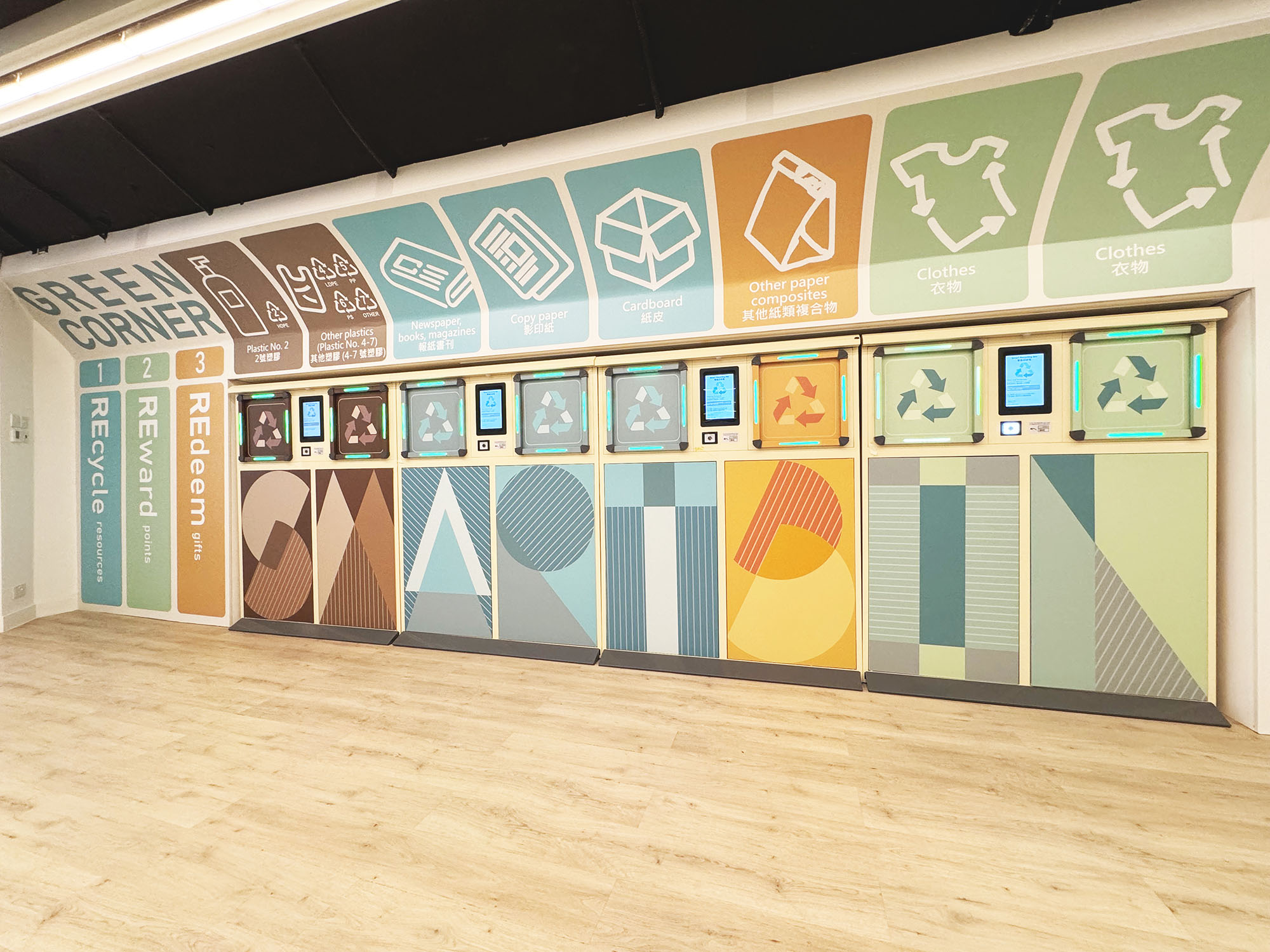

- Green Pitch: Reallocation of waste and recycling bins
The Government’s municipal solid waste charging policy is set to be implemented in April 2024. In preparation for this, the University is proactively taking steps to enhance material recycling. As part of a comprehensive waste management strategy, various recycling stations will be established, and waste and recycling bins will be redistributed across the campus. These initiatives aim to encourage and facilitate recycling practices among staff and students. One notable addition to the campus is the newly established Green Pitch, which was launched in May 2023. Strategically located at various spots on campus, Green Pitch serves as a dedicated area for waste recycling. With its slogan “Pitch In to Pitch Right”, Green Pitch actively encourages staff and students to participate in recycling activities with proper sorting and disposal methods.
